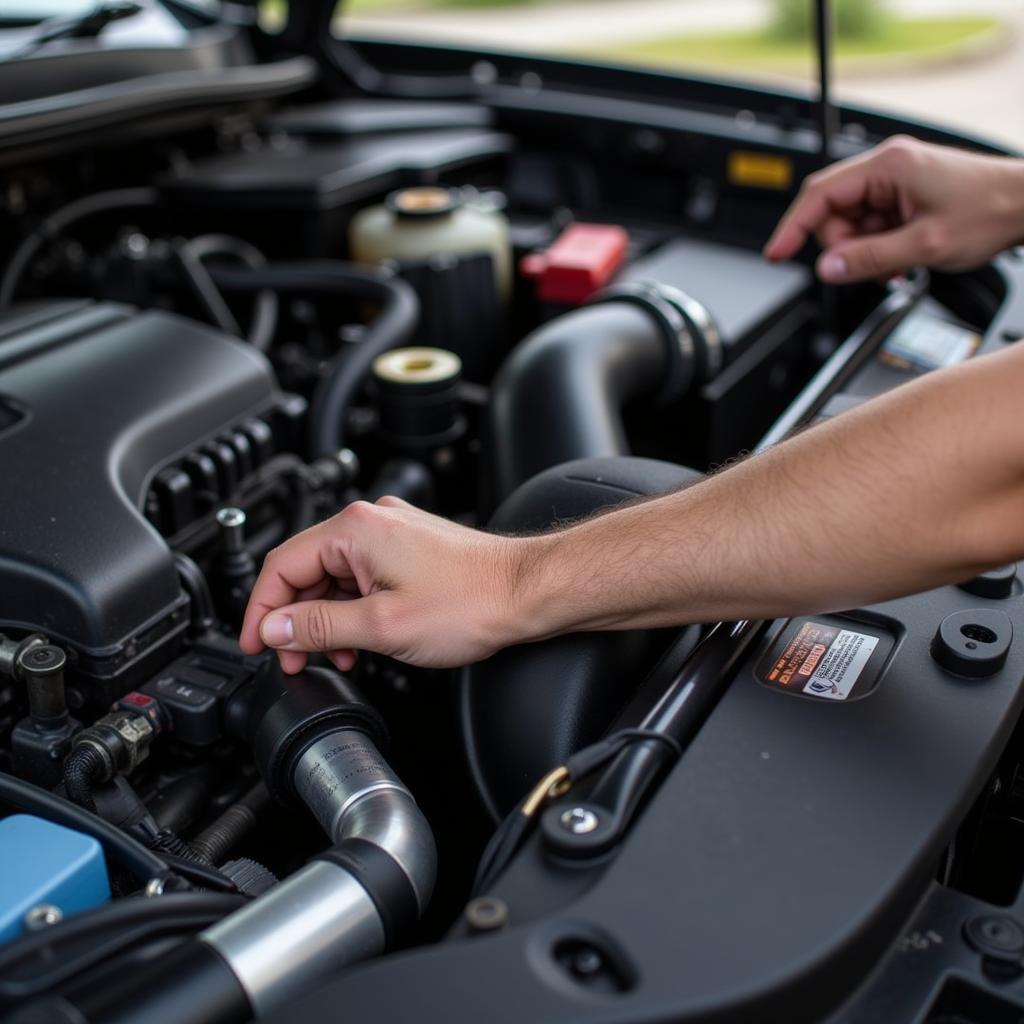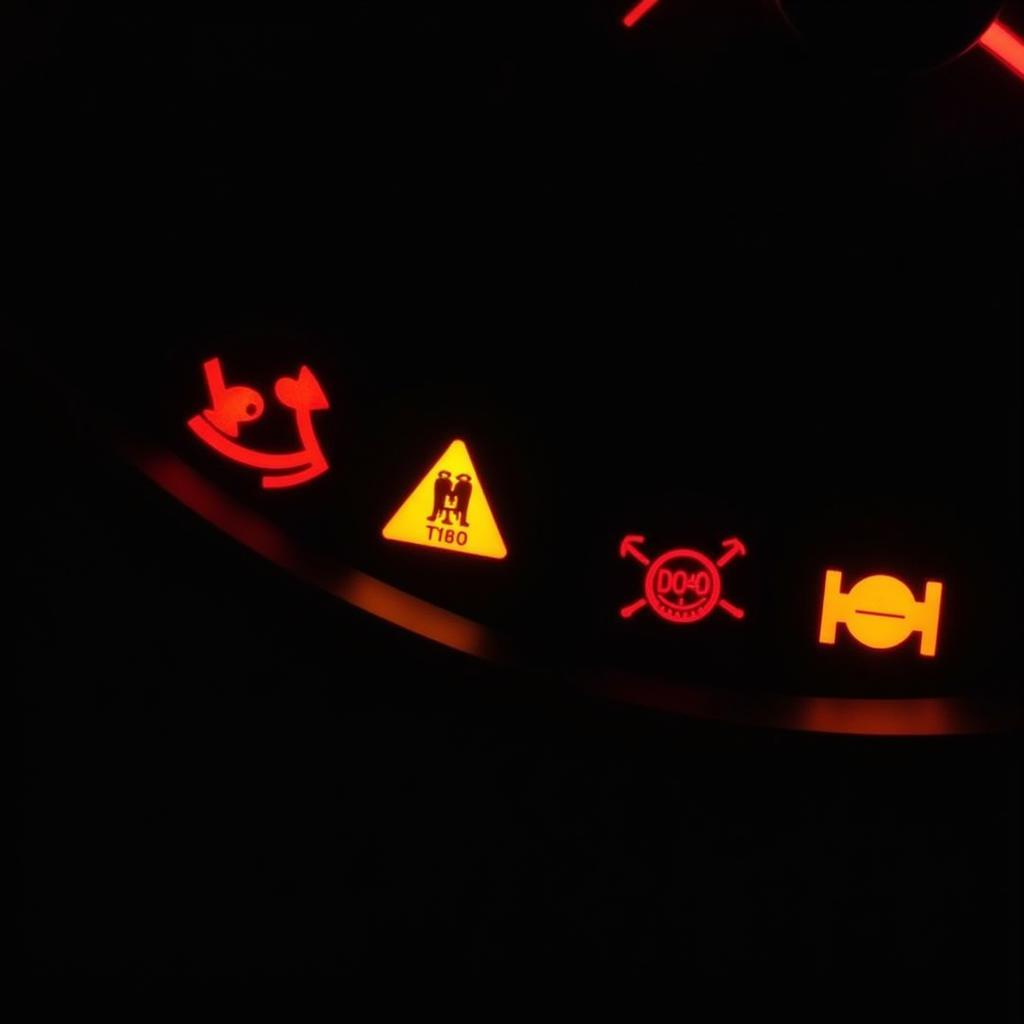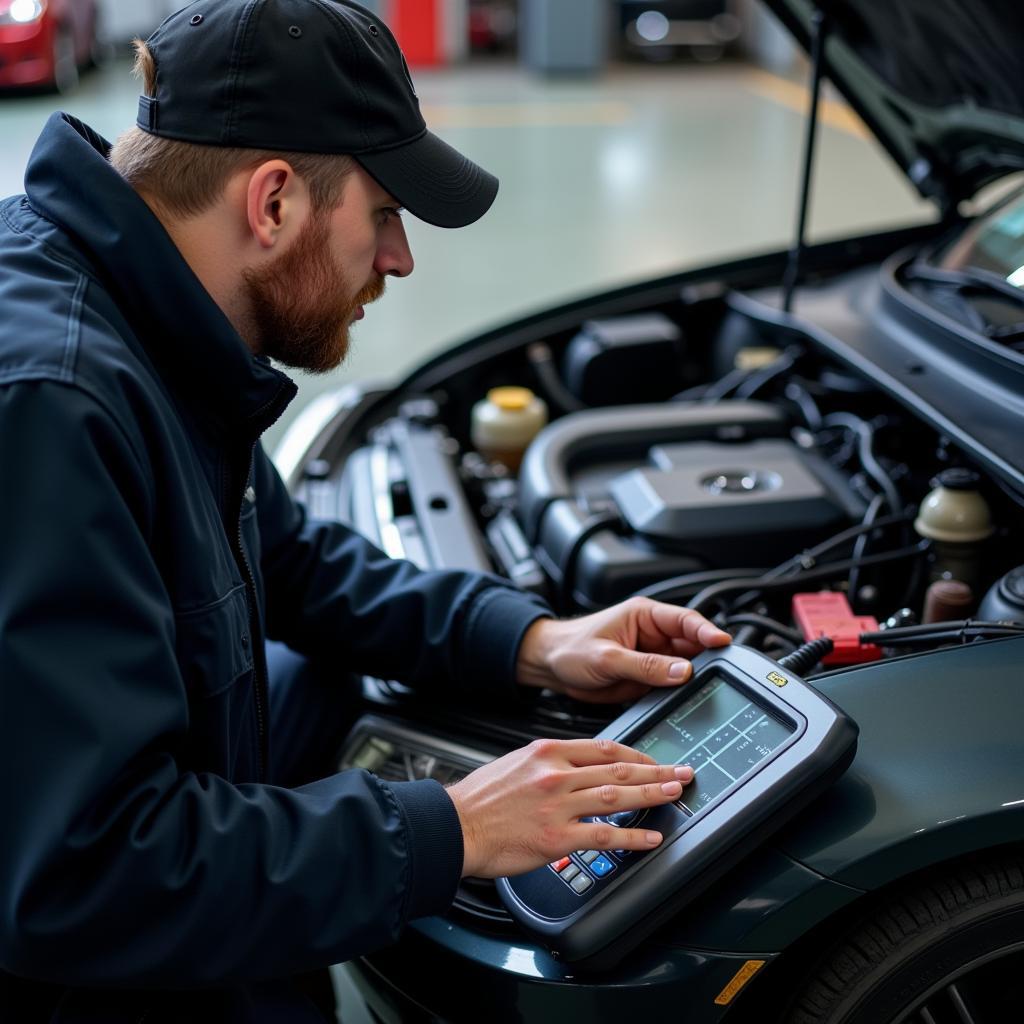How Often Do New Cars Need to Be Serviced?
Buying a new car is exciting, but it’s essential to keep up with its maintenance to ensure it runs smoothly for years to come. One of the most common questions new car owners have is, “How Often Do New Cars Need To Be Serviced?” The answer, as with most things car-related, isn’t one-size-fits-all.
Factors Influencing New Car Service Intervals
While the age-old advice of a “tune-up” every 3,000 miles is outdated, several factors play a role in determining your new car’s service schedule:
- Manufacturer Recommendations: Your car’s owner’s manual is your best friend! It outlines specific service intervals based on your car model, driving conditions, and even the oil type.
- Driving Conditions: Frequent stop-and-go city driving, towing heavy loads, or driving in extreme temperatures can put extra stress on your vehicle, potentially requiring more frequent servicing.
- Oil Type: Modern synthetic oils offer longer lifespans than conventional oil, extending the time between oil changes.
- Vehicle Usage: A car used for daily commutes will require more frequent servicing than one primarily used for weekend trips.
General Service Guidelines for New Cars
While always deferring to your owner’s manual, here’s a general idea of common service intervals for new cars:
- Oil Change: Most new cars equipped with synthetic oil can go 7,500-10,000 miles between changes. However, if you frequently drive in harsh conditions, sticking to a 5,000-mile interval might be wise.
- Tire Rotation: Rotating your tires every 5,000-7,000 miles helps ensure even wear and tear, prolonging their lifespan and maintaining optimal handling.
- Brake Inspection: It’s generally recommended to have your brakes inspected annually or every 12,000 miles.
- Fluid Checks: Regularly check your engine coolant, brake fluid, power steering fluid, and windshield washer fluid. Top them off as needed or as indicated in your owner’s manual.
 Checking Car Fluids
Checking Car Fluids
Importance of Regular Car Servicing
Staying on top of your new car’s service schedule isn’t just about ticking boxes; it offers several benefits:
- Maintains Warranty: Many manufacturers require documented service records to honor warranty claims.
- Prevents Costly Repairs: Regular inspections can identify minor issues before they snowball into major, expensive problems.
- Improves Fuel Efficiency: A well-maintained engine runs more efficiently, leading to better gas mileage.
- Increases Safety: Servicing ensures vital components like brakes, tires, and lights function optimally, enhancing your safety on the road.
- Extends Vehicle Lifespan: Regular care and maintenance can significantly prolong the life of your vehicle.
“Catching potential issues early is key,” says seasoned mechanic John Miller. “A simple oil change can reveal signs of engine wear that, if ignored, could lead to a catastrophic engine failure down the line.”
Signs Your New Car Might Need Service
Even if your car is relatively new, unexpected issues can arise. Watch out for these signs:
- Unusual noises (grinding, squealing, knocking)
- Warning lights on the dashboard
- Fluid leaks under the car
- Burning smells
- Vibrations or shaking while driving
- Reduced fuel efficiency
- Difficulty starting the car
 Car Dashboard Warning Lights
Car Dashboard Warning Lights
Conclusion
Understanding how often your new car needs service is crucial for its longevity, performance, and your safety. While general guidelines provide a good starting point, always refer to your owner’s manual for specific recommendations. By following the manufacturer’s suggested service schedule and addressing any warning signs promptly, you can enjoy miles of worry-free driving in your new car.
FAQs
1. Do I have to take my new car to the dealership for service?
No, you are not obligated to service your car at the dealership to maintain your warranty. You can choose any reputable independent mechanic, as long as they use quality parts and keep detailed service records.
2. What is typically included in a basic car service?
A basic car service generally includes an oil change, oil filter replacement, fluid top-ups, and a visual inspection of key components.
3. Can I service my new car myself?
While some routine maintenance tasks can be performed at home, it’s generally recommended to have your car serviced by a qualified mechanic, especially for more complex procedures.
4. How much does it cost to service a new car?
The cost of servicing varies depending on your car model, the type of service required, and the labor rates in your area.
5. What happens if I miss a scheduled service?
While missing one service may not be detrimental, consistently neglecting your car’s maintenance can void your warranty and lead to more significant problems in the long run.
For more information on car servicing, check out these articles:
- Can you get a car service during lockdown?
- Where can I take my car to get serviced?
- How often should my car get serviced?
- How often should a new car be serviced?
- Do you need to get your car serviced?
If you need any further assistance or have questions about car servicing, do not hesitate to reach out to us via WhatsApp: +1(641)206-8880, or Email: [email protected]. Our dedicated customer service team is available 24/7 to assist you.

